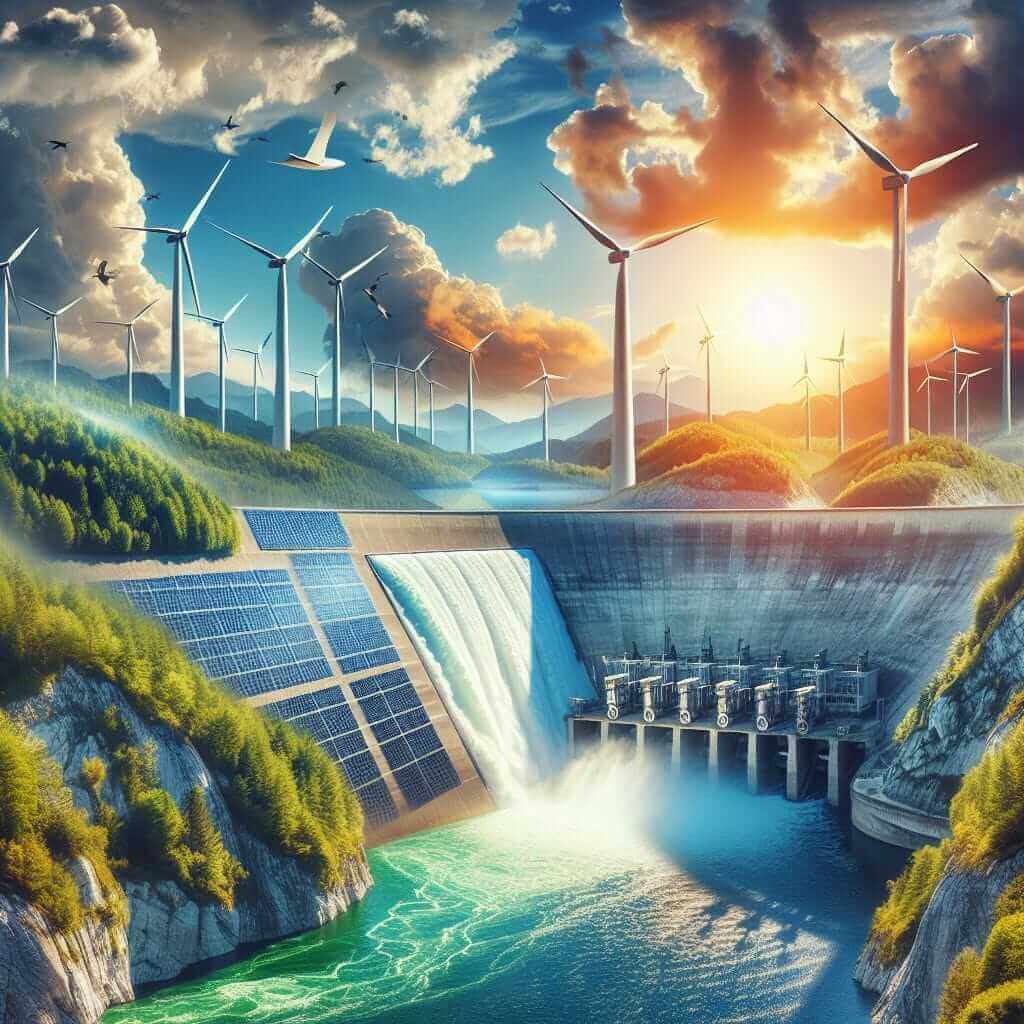The IELTS Reading section requires a combination of skills: skimming, scanning, and in-depth reading to comprehend the text’s meaning and answer questions accurately. One topic that has been gaining traction in real IELTS exams and relevant in today’s world is the impact of renewable energy on energy security. This topic has appeared frequently due to its importance and relevance, making it a likely candidate for future exams.
In this article, we will create an IELTS Reading practice exam centered on the topic “What are the effects of renewable energy on energy security?” Following this, we will provide questions, model answers, and useful tips to help you prepare effectively.
Practice Reading Test: Medium Text
Passage: The Effects of Renewable Energy on Energy Security
As the world continues to grapple with the consequences of climate change and dwindling fossil fuel reserves, the push towards renewable energy has never been more critical. Renewable energy sources such as solar, wind, and hydroelectric power provide not only an environmentally friendly alternative to traditional fossil fuels but also play a significant role in enhancing energy security.
Energy security refers to the uninterrupted availability of energy at an affordable price. The shift to renewable energy sources can significantly enhance energy security in several ways. Firstly, renewable energy sources are abundant and inexhaustible. Unlike fossil fuels, which are finite and subject to geopolitical tensions, renewable energy can be harnessed locally and sustainably.
Secondly, the diversification of the energy mix reduces the reliance on any single source or supplier, thus mitigating the risks associated with energy dependence. Countries that invest in multiple renewable energy sources can better withstand global energy market fluctuations and potential supply disruptions. This diversification also fosters technological innovation and economic growth within the renewable energy sector, creating new jobs and expanding industries.
Furthermore, the decentralization of energy production through renewable energy systems increases resilience against natural disasters and grid failures. Distributed generation systems, particularly solar and wind, can supply power to remote and off-grid areas, enhancing the overall stability of the energy supply network. These systems also reduce the likelihood of large-scale power outages and increase national energy autonomy.
However, the transition to renewable energy is not without challenges. The intermittent nature of some renewable energy sources, such as solar and wind, necessitates the development of efficient storage solutions and smart grid technologies to ensure a reliable supply. Additionally, significant initial investments are required to build renewable energy infrastructure, which can be a barrier for developing countries.
Despite these challenges, the long-term benefits of renewable energy for energy security are evident. The global shift toward a more sustainable and secure energy future hinges on continued investment, innovation, and collaboration in the renewable energy sector.

Questions
Multiple Choice
-
What is the primary benefit of renewable energy in relation to energy security?
a) Cost-effectiveness
b) Sustainability
c) Technological ease
d) Geopolitical dominance -
How does renewable energy contribute to energy diversification?
a) By reducing fossil fuel usage
b) By attracting foreign investments
c) By utilizing multiple local resources
d) By centralizing energy production
True/False/Not Given
-
Renewable energy sources are inexhaustible.
True / False / Not Given -
Renewable energy reduces energy market fluctuations due to technological advancements.
True / False / Not Given
Matching Information
Match the following features with their corresponding explanations:
- Decentralization of energy production
- Diversification of energy mix
- Intermittent nature of renewable energy
a) Requires development of storage solutions
b) Reduces dependence on a single energy source
c) Enhances stability during natural disasters
Answer Key with Detailed Explanation
Multiple Choice
-
b) Sustainability: The passage emphasizes that renewable energy is abundant and inexhaustible, highlighting its sustainability over cost-effectiveness, technological ease, or geopolitical dominance.
-
c) By utilizing multiple local resources: The text states that countries investing in multiple renewable sources reduce reliance on a single supplier, which fits the diversification theme.
True/False/Not Given
-
True: The passage clearly indicates that renewable energy sources are abundant and inexhaustible.
-
Not Given: While the passage discusses renewable energy reducing market fluctuations, it doesn’t attribute this specifically to technological advancements.
Matching Information
- c) Enhances stability during natural disasters: As discussed, decentralization increases resilience against disasters.
- b) Reduces dependence on a single energy source: Diversification lowers the risk associated with dependency.
- a) Requires development of storage solutions: The intermittent nature of renewables necessitates efficient storage.
Common Mistakes to Avoid
- Overcommitting to one type of question: Ensure you practice all question types to be versatile in the exam.
- Missing keywords: Pay close attention to keywords in both the passage and questions.
- Rushing through the text: Skim for general understanding first, then read carefully for specific details.
Vocabulary Highlight
- Intermittent (adj.): /ˌɪntərˈmɪtənt/ – Occurring at irregular intervals; not continuous or steady.
- Diversification (n.): /dɪˌvərsəfəˈkeɪʃən/ – The process of a company enlarging or varying its range of products or field of operation.
- Geopolitical (adj.): /ˌdʒiː.oʊ.pəˈlɪt.ɪ.kəl/ – Relating to politics, especially international relations, as influenced by geographical factors.
Grammar Focus
- Complex Sentences: Ensure you understand how to use subordinating conjunctions to create complex sentences.
- Example: “Although renewable energy is abundant, it requires efficient storage solutions.”
- Structure: [Subordinating conjunction] + [dependent clause], [main clause].
Tips for High IELTS Reading Scores
- Practice regularly: Consistent practice helps you get used to the format and types of questions.
- Expand your vocabulary: A broader vocabulary helps you understand the passage better.
- Time management: Develop a strategy to allocate time efficiently across questions.
- Use practice tests: Familiarize yourself with the exam structure by taking regular mock tests under exam conditions.
Remember to stay focused and practice diligently. With the right strategies and mindset, achieving a high score in IELTS Reading is within your reach!